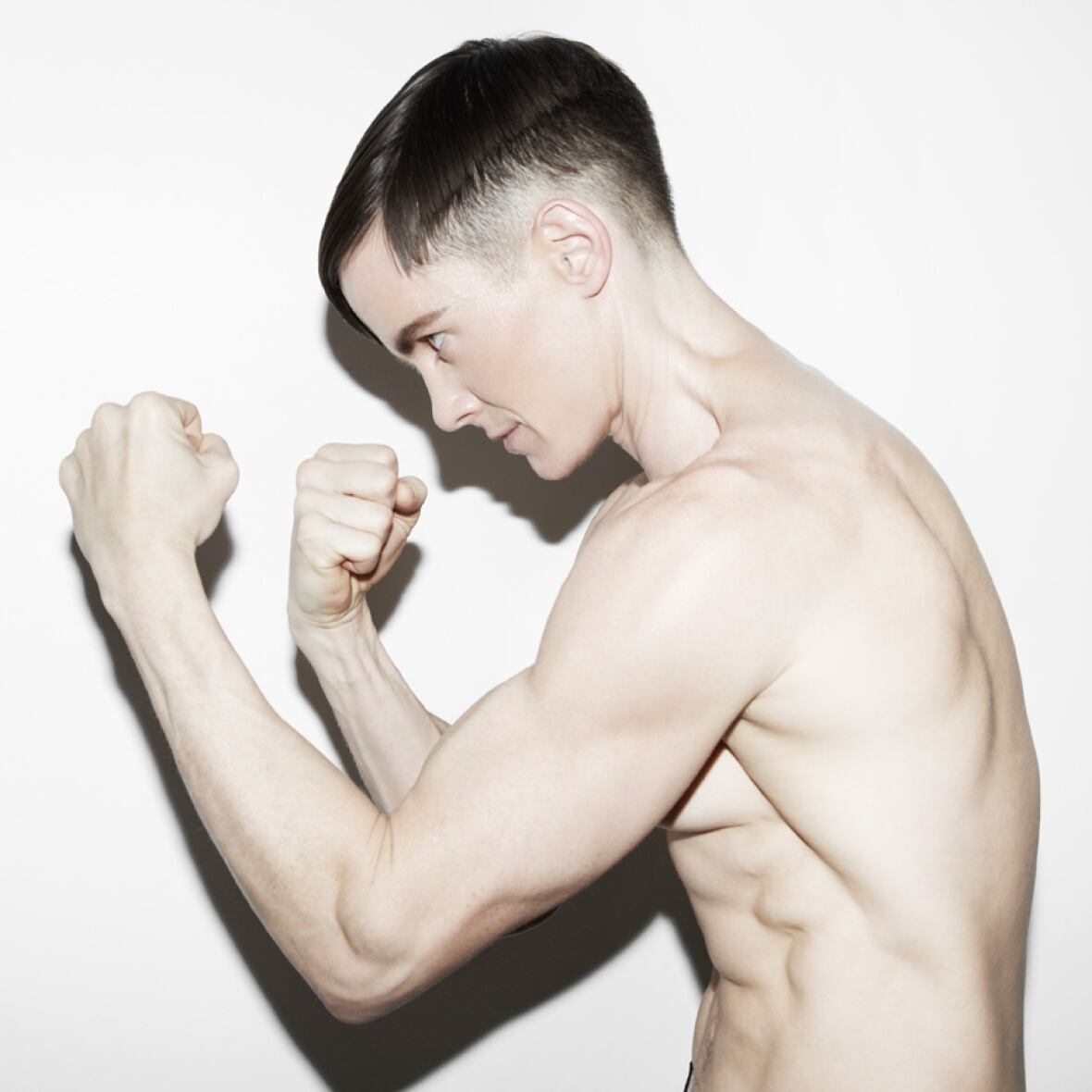Trans and non-binary bodies come together in power with Cassils' first work of contemporary dance
The multidisciplinary artist's 'Human Measure' is a mighty collaborative sword against oppressive forces

Queeries is a weekly column by CBC Arts producer Peter Knegt that queries LGBTQ art, culture and/or identity through a personal lens.
In the contemporary dance performance Human Measure, six naked bodies take the stage as literal human vessels for a message that has never felt more necessary: for trans people, things are very much not okay.
One of those bodies belongs to Cassils, the Toronto-born, Montreal-raised multidisciplinary artist who created Human Measure in response to the unprecedented attack on trans rights in the United States, where they now live.
"It's something I've been working on for a long time," Cassils tells me outside the Berkeley Street Theatre in Toronto, where Human Measure had its Canadian debut last night. "It's had a lot of fits and starts due to COVID, like everything else. And it was initially inspired specifically by living through the last administration in the United States."
"There was a sort of decorum that was lost and a behaviour that was all of a sudden completely socially acceptable. And I noticed in my own queer community that I had an increase of friends that were experiencing hate crimes and violently being attacked."
Cassils' first work of contemporary dance, Human Measure responds through a remarkable union of ideas, minds and bodies. With movement rooted in kinesiology, martial arts, sports science and personal safety protocols, it reinterprets French artist Yves Klein's famous Anthropometries paintings of the 1960s. Whereas Klein used nude female models in that series as passive "human paintbrushes," Cassils and the performers in Human Measure wield "the double-edged sword of representation in a collective process of empowered labour."
"It's really grounded in this idea of of a variety of trans and non-binary bodies coming together from different lived experiences," they say. "[We're speaking to] what it is to live in a world, at least in the United States, which is increasingly discriminatory and violent and punishing whilst you're trying to come into your own power and your own skin and your own being and your own beauty. And so the work really builds upon this idea of self-empowerment, physical empowerment and physical strengthening."
Cassils put these ideas forth throughout the entire process, saying that it was important to them to build care into the process of making the work — "centering all of us in our creative process, creating a less hierarchical process that is usually found, I think, in dance.."

Among those who came together to create Human Measure are choreographer Jasmine Albuquerque (who has notably done movement direction for the likes of Beyoncé and Rihanna and danced in music videos for Lil Nas X and the Weeknd), as well as the five extraordinary performers that join Cassils on stage: Alucard Mendoza McHaney, Kaydence De Mere, B Gosse, Jas Lin and Canyon Carballosa.
"This is something that I have maybe pushed to the surface of my own volition of an initial idea," Cassils says. "But there's so many incredible collaborators that come forth in this work. All of the performers are young dancers, and they have just brought their entire hearts and souls."
They say they hope that audiences of Human Measure leave the performance contemplating "the incredible genesis in working collaboratively."
"Even though we feel sometimes that we're in these impossible moments, there's a sort of generativeness and inwardness that comes from the combined talent and combined beauty," they say. "And I really hope that this stands out as a work that is a sum of its parts."
"It's not something that's authored by me in a hierarchical way. And I hope that this model of combined creative agency can serve as an example for us to creatively solve problems in a time of increased oppression. Because I think there's many things that a fascist state of the world can take from us, but our creative agency is not one of them."

Another thing Cassils hopes that the show does is really make us think about what defines "visibility."
"We're told that if we have visibility, we have reached a place in the social world where we have what equates to equal rights, which is just not the case," they say. "So to be seen does not always mean to actually be seen."
"In the moment where we live, we rest on these capitalist consumptions of bodies and of identity. [Just] because we have Laverne Cox on the cover of Time magazine does not mean that we don't have over, like, 83 ballots on state legislatures sitting on Trump-appointed desks that are curtailing and are erasing."
"We are in the midst of the largest assault on civil rights in the history of the United States against LGBT [people], specifically trans [people] and specifically trans youth of colour. And so this work is really problematizing what it is to be seen. And rather than saying that the goal is to be seen, it talks about the power of what it is to take refuge in the shadows."
Human Measure runs through October 29th at the Berkeley Street Theatre in Toronto.
